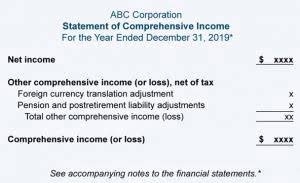
Individual accounts should be interest-bearing, unless the funds will be held for only a short time or are likely to yield only a small amount of interest. If payment of interest to the recipient of the bookkeeping funds might present problems (a real possibility in certain situations), an individual IOLA account may be opened and the interest will be forwarded to the IOLA fund. These rules are neither obvious nor intuitive and lawyers who are not familiar with them practice at their peril.
- Each local jurisdiction also has rules for managing client trust accounts, and many require lawyers to use IOLTA accounts.
- We’ll use a simple hypothetical example to illustrate what this can look like.
- When the Supreme Court and state legislatures created IOLTA in the 1980s, attorneys could deposit their earnings into an interest-bearing trust account.
- That means, typically, that client funds eligible for IOLTA involve small amounts of money held for a long time, or significant amounts of money held for a short time.
- Staying compliant while navigating a maze of rules and regulations is no easy feat.
IOLTA Account vs. Escrow Account
Software like MyCase’s legal accounting solution makes this easy by assigning trust trust accounting for lawyers account funds to specific clients. By doing so, our platform can monitor balances and prevent you from withdrawing more funds than a client has in their account. The Supreme Court has authority to appoint a successor signatory for the attorney trust account. Trust accounting has a well-earned reputation as a malpractice minefield that could jeopardize even the most carefully-run legal practices.

BEST PRACTICES
- Generic accounting software can make this process challenging, but a trust accounting solution designed for lawyers can simplify it.
- IOLTA Account holds client funds that are either too small in amount or held for too short a period to generate interest for clients.
- A client trust account is like a safe haven for your client’s funds, separate from your firm’s operating accounts.
- Generally, bar associations have taken the attitude that even $100 of personal funds in a client’s trust account is commingling of the lawyer’s and client’s funds.
In its most essential form, trust accounting is defined as bookkeeping for trust accounts in accordance with legal and ethical requirements. Lawyers may need to hold funds for retainers, settlement proceeds, and court-awarded damages, among other reasons. Using an IOLTA account ensures any interest earned is remitted to state bar associations, which are donated to support legal aid programs and other public service initiatives. Errors can leading to malpractice suits, so many attorneys choose to structure their fees and payment plans to avoid using their trust accounts. Check out the replay of our Accounting 101 Webinar with Charles E. Ducloux to learn about the basics of trust accounting and how software can help your law firm stay compliant. Lawyers generally must deposit client funds in IOLTA trust accounts if the potential interest they could earn wouldn’t exceed the costs of holding those funds in that account.
Keep Client and Business Funds Separate
- Detailed records help your firm maintain transparency for each client and ensure they can access funds right away.
- An escrow account is generally used to hold funds or assets during transactions, like real estate deals, and is managed by a neutral third party.
- Many believe that if they don’t “steal” their clients’ funds, they are not at risk.
- When managing IOLTA accounts, be sure to always seek expert advice and partner with legal technology companies that prioritize stringent compliance with industry regulations.
- Unfortunately, it is not uncommon for lawyers to commingle funds improperly and get themselves into trouble.
- Provide that if you don’t receive a complaint or dispute in writing from the client within the number of days from the date of the invoice or statement set forth in the agreement, the client will be deemed to have approved the billing.
- Mishandling funds could also get you into financial trouble with your clients.
The IOLTA program was first launched in Florida in 1981 with the goal to use earned interest to support charitable causes, like providing civil aid to those who can’t afford it. The American Bar Association (ABA) says IOLTA grants reached over $175 million in 2020. All of your raw financial information flows into it, and useful financial information flows out of it. If you’re just starting out and think you’ve set up your accounting the wrong way, talk to a professional accountant with experience dealing with IOLTA. (1) Funds reasonably sufficient to pay bank charges may be deposited therein. A Practical Guide was first published in April 1988, with the help ofthe Committee on Professional Ethics of the New York County Lawyers’Association.
When a client demands a return of unearned money still held in an attorney trust account, the refund should be given right away. Failure to refund money to a client entitled to it can subject the lawyer to a civil suit for conversion, breach of fiduciary duty and claims of theft. Attorneys may retain in their ATA an amount “reasonably sufficient to pay bank charges”—currently $250.

Common Trust Accounting Errors

Interest funds are used for charitable causes like pro bono legal work. Your state bar association requires you to be able to show how much money each client has in their account at any given point in time. Every single transaction in and out of your IOLTA must be accounted for, no matter how small.
A Primer on Using Attorney Trust Accounts
Appreciate the subtleties of trust accounting rules and the severe consequences of violating them. While the American Bar Association provides a good overview of trust accounting, it’s crucial to research how your state handles trust accounting to ensure compliance with all attorney trust account rules. Think of a client trust account as being almost like a checking account. Any assets transferred into the trust account belong to the client and must be managed on their behalf. Just as it would be inappropriate for an attorney to use a client’s checking account to pay for office supplies, it would be equally inappropriate to use client trust account funds for personal or firm expenses. Let’s imagine that your law firm has agreed to provide legal services to Doris, a local orthodontist, representing her in a lawsuit.
- An Interest on Lawyer Trust Accounts (IOLTA) account is a trust account that sends earned interest to local Bar Associations.
- Second, commingling of personal and trust funds makes it much harder to determine if the lawyer has used, or misused, any of the trust funds which were supposed to be held intact.
- Your state bar association requires you to be able to show how much money each client has in their account at any given point in time.
- However, not all platforms are IOLTA-compliant or equipped to meet the unique needs of law firms.
- That “record” must include the “date, source and description” of every deposit and the “date, payee and purpose” of every withdrawal.
- Note that some jurisdictions may place additional requirements on the withdrawal of funds from a trust account.
- When you open an attorney trust account, also known as an IOLTA account, it must be explicitly designated as such with your bank.
Step 1: Hold Fast to Your State’s Bar Association Rules

This is exactly the sort of murky question that keeps lawyers up at night. In response to this, some attorneys keep their flat fee amount under $2,000. Others charge an “intake fee” at the start of the case and the remainder of the flat fee is kept under $2,000 to be exempt. If you’re a lawyer in Texas, check out our comprehensive guide, What You Need to Know About IOLTA Accounts in Texas. There is a $400,000 maximum limit, per law client loss, on awards from the Fund, fixed by regulation of the Trustees. This short video, produced in 2007, with an introduction by former Chief Judge Judith S. Kaye, provides the history and https://www.bookstime.com/ purpose of the Lawyers’ Fund.

